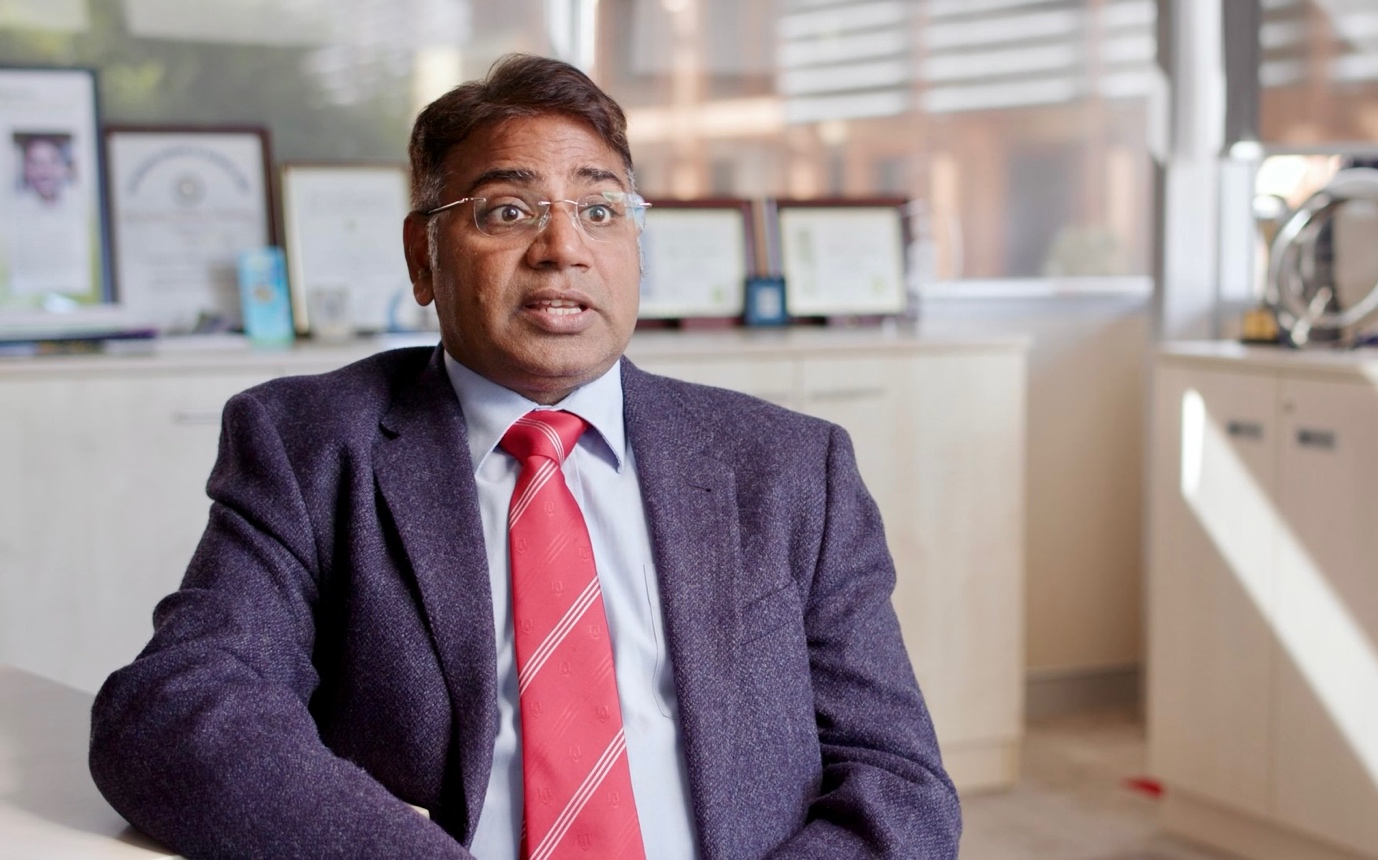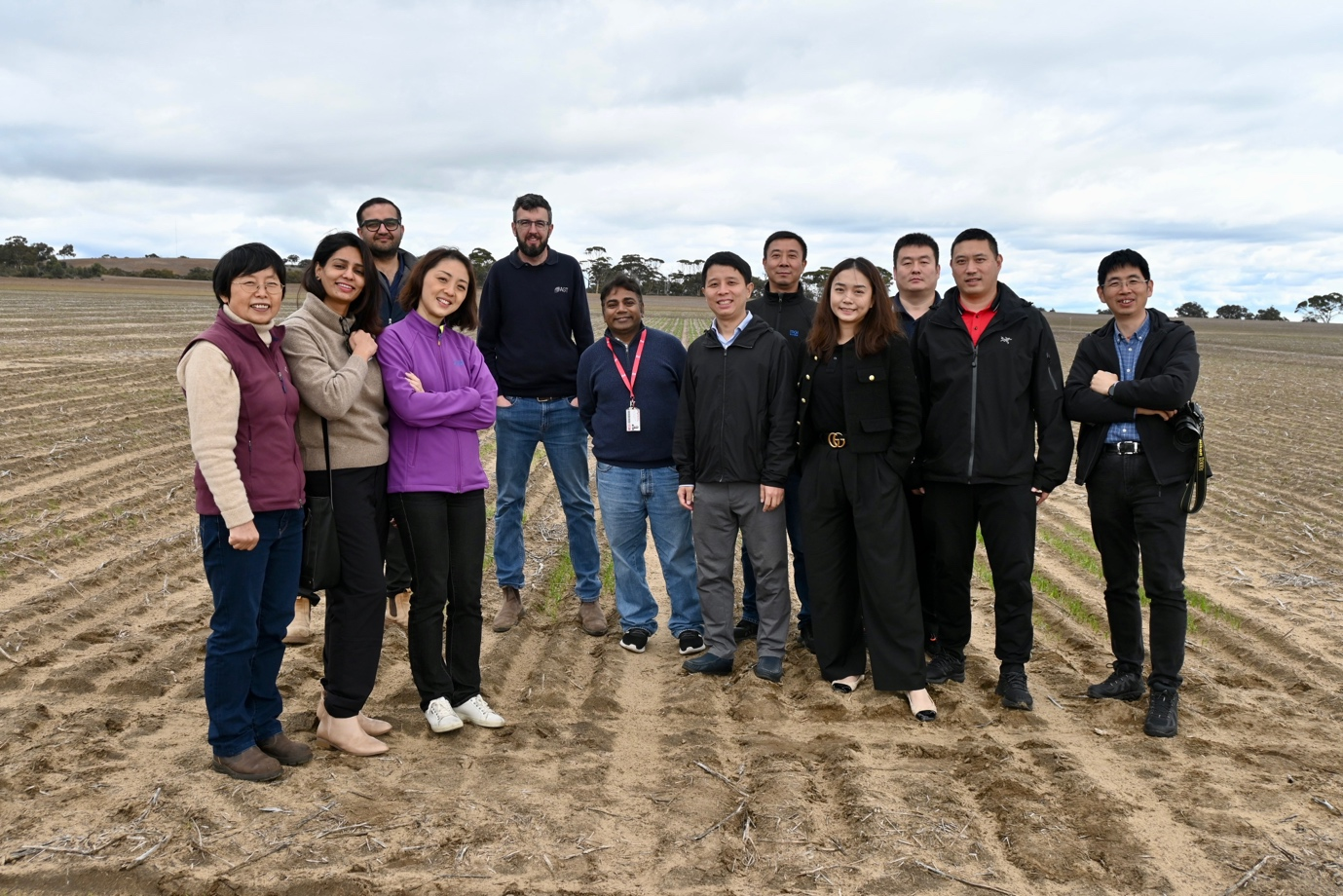“If we can identify the genes which are responsible for high yield, for tolerance to drought, tolerance to different abiotic and biotic stresses, then based on the information we can accelerate the breeding processes.”
- Professor Rajeev Varshney FRS
Ensuring that everyone in the world has access to an affordable and healthy diet wherever they may live should be a goal that everyone supports. Unfortunately, we still have a long way to go in achieving this.
The Food and Agriculture Organization of the United Nations in ‘The State of Food Security and Nutrition in the World 2023’ estimated that between 691 and 783 million people in the world faced hunger in 2022, and that by 2030 around 600 million people will be chronically undernourished.
These are challenging statistics. One proven approach in solving this crisis is to improve agriculture - tackling issues such as low crop yield and crop tolerance to diseases or climate change so that more crops can be grown in the areas that need them. This is why the power of genomics is being introduced to help revolutionize our existing farming methods.
 Prof. Rajeev Varshney, Fellow of the Royal Society, the Director of the Centre for Crop and Food Innovation, Director of Western Australian State Biotechnology Centre, and International Chair in Agriculture and Food Security at Murdoch University, Australia.
Prof. Rajeev Varshney, Fellow of the Royal Society, the Director of the Centre for Crop and Food Innovation, Director of Western Australian State Biotechnology Centre, and International Chair in Agriculture and Food Security at Murdoch University, Australia.
One of the leading agriculture scientists specializing in genomics is Prof. Rajeev Varshney, Fellow of the Royal Society, currently the Director of the Centre for Crop and Food Innovation, Director of Western Australian State Biotechnology Centre, and International Chair in Agriculture and Food Security at Murdoch University, Australia. He is a leading prolific author of research papers and a frequently invited speaker at international scientific events.
Since 2010 Prof. Varshney has been working closely with BGI to undertake assembling genomes, and whole genome re-sequencing of thousands of varieties of orphan legume crops such as pigeonpea and chickpea, with the aim of increasing yields and offering more sustainable possibilities for food and nutrition security.
Prof Varshney values this collaboration, “One key thing with the BGI Group is that they are not just a service provider. When they work with a scientist or research institute, they work as true collaborators in terms of their data analysis, in terms of their interpretation.” In 2021, a chickpea research article was published in Nature, measuring about 3,000+ chickpea varieties. Currently, BGI and Prof. Varshney are working on a larger scale one covering around 10,000+ chickpea species.
 Prof. Rajeev Varshney and his team together with BGI Group delegation.
Prof. Rajeev Varshney and his team together with BGI Group delegation.
The study of plant genomes has changed considerably in the last decade. This change has occurred at the technology level, where the development of sequencing technology, in part led by BGI Group, has driven down the cost of sequencing so the sequencing can be carried out on a large scale, making it more feasible to determine which genes determine which traits in crops. At the beginning, BGI could only do one reference genome sequencing at a time, after that it could do more than re-sequencing tens of genomes, then slowly it achieved up to 2,000 to 3,000 genomes.
But when sequencing becomes cheap, another factor to consider is whether scientists accept this technology, and the new research method it brings. This relies on the improvement of the overall perception of the scientific community, especially in the field of agriculture, represented by Prof Varshney.
He has written many papers and reviews to advocate for the use of large-scale genome sequencing and the large-scale application of genomic data in crop research. One such application, for example, could be how to use AI or machine deep learning methods to design a whole set of breeding processes. Good thing now is that there are many more scientists embracing the use of large-scale genomic data for research.
“The most important thing is how we can use this wealth of information in crop improvement,” explains Prof. Varshney. “I think we can continue to accelerate in basic science as well as the practical application of genomics for improving agriculture,” he added.
In the future, with large-scale plant genome data, scientists will be able to know what genes associate to what traits and will be able to do better data-based breeding to achieve precision agriculture. In the future, it may even be possible to write a program that will automatically design and provide guidance on the entire process of plant breeding and crop cultivation with the power of AI.
With data, technology and more and more genomics research there will be an enormous amount of knowledge that can be incorporated into crop breeding and management programs. This will lead to greater food security for a growing global population, bringing hope that the number of people in the world facing hunger can be significantly reduced.
A broader article about Prof. Varshney and his lifetime work in agricultural research at the time he was elected as Fellow of the Royal Society earlier this year can be found https://en.genomics.cn/en-news-6746.html



